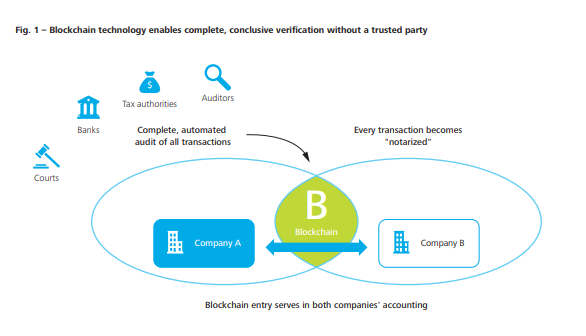Brett Rickaby's Insightful Corner
Exploring the world through news, tips, and intriguing stories.
Fair Play Blockchain Audits: Where Trust Meets Transparency
Explore how Fair Play Blockchain Audits redefine trust and transparency in the crypto space. Discover insights that protect your investments!
Understanding the Importance of Blockchain Audits: Ensuring Fair Play and Security
In the rapidly evolving world of digital finance and decentralized applications, blockchain audits have emerged as a critical component in ensuring the integrity and reliability of blockchain systems. A comprehensive audit is not only about examining code for vulnerabilities; it also assesses the overall compliance of a project with best practices, regulatory requirements, and community expectations. By conducting regular audits, organizations can identify potential risks and strengthen their systems against malicious attacks or inadvertent errors. Ensuring fair play in blockchain environments protects investors and users alike, fostering a trustworthy ecosystem.
The significance of blockchain audits extends beyond mere security; it enhances user confidence and promotes long-term sustainability in the blockchain space. When projects undergo rigorous auditing processes, they demonstrate a commitment to transparency and accountability, which can significantly improve their reputation among users and investors. Moreover, audits provide a roadmap for continuous improvement, allowing developers to refine their protocols and adapt to the ever-changing technological landscape. In a world where the stakes are high, embracing a culture of security through thorough audits is crucial for the success of any blockchain initiative.

Counter-Strike is a highly competitive first-person shooter game known for its intense gameplay and strategic team-based mechanics. Players can engage in various modes, including bomb defusal and hostage rescue, which require teamwork and coordination. For those interested in enhancing their gaming experience, using a stake promo code can provide bonuses that enrich the overall play.
Key Features of Fair Play Blockchain Audits: What to Expect?
When it comes to ensuring the integrity and security of blockchain projects, Fair Play Blockchain Audits play a crucial role. These audits are designed to identify vulnerabilities in smart contracts and decentralized applications before they can be exploited. One of the key features of these audits is their comprehensive assessment process, which typically includes code reviews, functionality testing, and security checks. Auditors typically use automated tools alongside manual inspection techniques to ensure that no stone is left unturned. Expect detailed reports outlining potential risks and recommendations for enhancements, which not only instill confidence among investors but also promote a culture of transparency within the blockchain community.
Another important aspect of Fair Play Blockchain Audits is the emphasis on compliance with best practices and industry standards. Auditors look for adherence to protocols set by leading organizations, ensuring that projects are not only secure but also align with regulatory requirements. Moreover, these audits often involve stakeholder consultations, allowing project teams to address any identified issues proactively. By providing ongoing assessments and fostering dialogue, fair play audits enhance the overall quality and reliability of blockchain implementations. Ultimately, companies can expect a thorough review that not only mitigates risks but also serves as a cornerstone for sustainable blockchain operations.
How Do Blockchain Audits Promote Trust and Transparency in Cryptocurrency Transactions?
Blockchain audits play a crucial role in fostering trust and transparency in cryptocurrency transactions. By meticulously examining the code and protocols that govern blockchain technology, auditors ensure that the system operates as intended, free from vulnerabilities or fraudulent activities. This scrutiny empowers users to transact with confidence, knowing that their assets are safeguarded and that the underlying technology is reliable. Moreover, an audit often includes a review of the historical transaction data, enabling a comprehensive assessment of the network's integrity, which further instills trust among participants.
The process of conducting a blockchain audit typically involves several steps, including code review, security assessments, and compliance checks. Once completed, auditors provide detailed reports that highlight their findings and offer recommendations for improvements. This level of transparency not only reassures current users but also attracts potential investors who are increasingly seeking accountable and trustworthy platforms. Consequently, audits not only enhance the credibility of individual cryptocurrencies but also contribute to the overall growth and acceptance of the digital currency ecosystem.